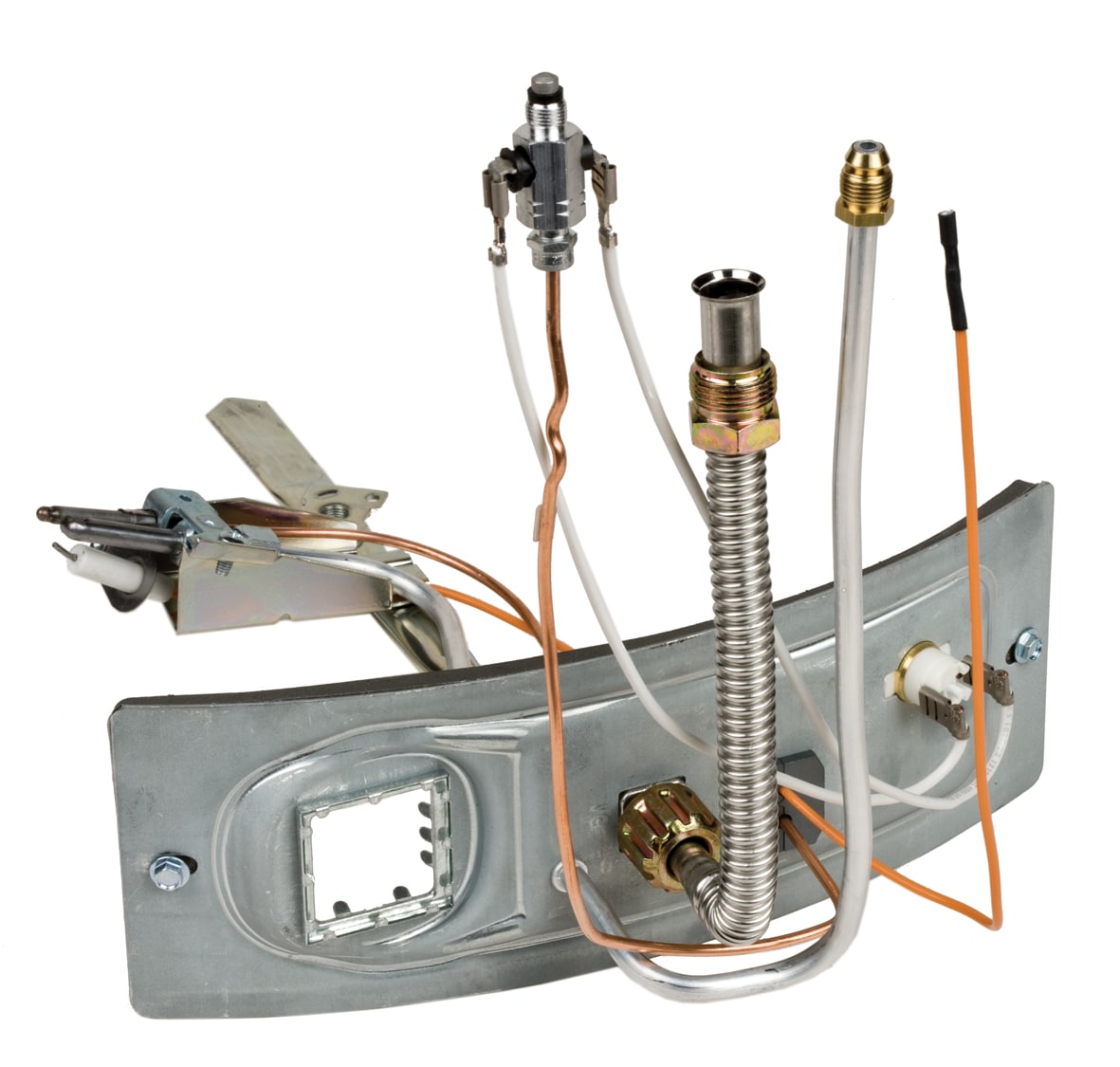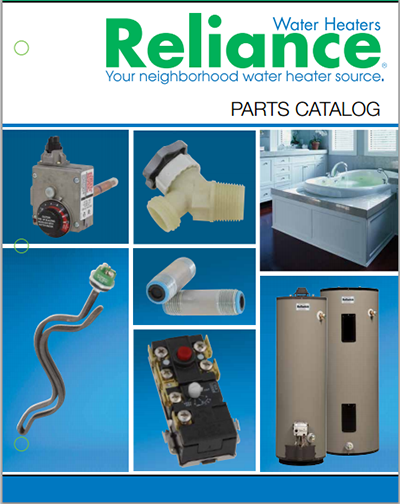Are you struggling with a faulty Reliance water heater? You’re not alone.
A water heater that doesn’t work as expected can quickly turn a cozy shower into a chilling experience. But before you call in expensive professional help, did you know that many common issues can be resolved with just a bit of troubleshooting?
Imagine the satisfaction of fixing the problem yourself, saving both time and money. In this guide, we’ll walk you through simple steps to diagnose and solve frequent issues with your Reliance water heater. Don’t let a minor glitch disrupt your comfort. Dive in to discover how you can restore your hot water flow and regain control over your home’s hot water system.
Credit: www.reliancewaterheaters.com
Page Contents
Common Issues
Reliance water heaters are reliable but can face issues. Understanding common problems helps in quick fixes. Early detection saves time and money.
Leaking Water Heater
Leaking often signals a serious problem. Check for loose connections. Inspect valves and pipes closely. Damaged components may cause leaks. Regular checks prevent major leaks.
No Hot Water
No hot water frustrates many users. Confirm the power supply first. Look at the thermostat settings. Inspect heating elements for faults. Regular maintenance reduces the chance of this issue.
Inconsistent Water Temperature
Fluctuating temperature is bothersome. Check the thermostat settings. Inspect the dip tube for damage. Sediment buildup can affect temperature consistency. Routine cleaning helps maintain steady temperatures.
Unusual Noises
Strange noises can indicate problems. Sediment buildup causes rumbling sounds. Loose parts may result in rattling noises. Inspect the heater thoroughly. Regular cleaning minimizes noise issues.
Diagnostic Techniques
Is your Reliance water heater acting up? Before you call a technician, try some basic diagnostic techniques. These steps can help identify common issues. You might even solve the problem yourself. Let’s explore each technique in detail.
Visual Inspection
Start with a visual inspection. Check for leaks around the heater. Look for any rust or corrosion. Ensure all connections are tight. See if there are any unusual noises. A simple check can reveal obvious issues.
Checking Thermostat Settings
Next, examine the thermostat settings. Make sure they are set correctly. An incorrect setting can cause irregular water temperatures. Adjust the thermostat if necessary. This simple step can often resolve temperature issues.
Testing Heating Elements
Heating elements can fail over time. Use a multimeter to test them. Disconnect power before doing this. Set the multimeter to the correct setting. Check for continuity. A broken element will have no continuity.
Examining Pressure Relief Valve
The pressure relief valve is a safety feature. Ensure it is working properly. Lift the valve’s lever gently. You should hear a rush of air or see water. If not, the valve may need replacement. This step is crucial for safety.
Repair Solutions
Reliance water heaters are reliable appliances. Sometimes, though, they may need repairs. Understanding repair solutions is crucial for efficient maintenance. This guide highlights common issues and their fixes. Each solution addresses specific problems. Let’s delve into these repair solutions.
Fixing Leaks
Leaks can occur in water heaters. First, identify the leak source. Check the valves and connections. Tighten loose fittings using a wrench. Inspect the pressure relief valve. Replace it if damaged. Ensure the tank is not corroded. If corrosion is present, consider replacing the tank.
Replacing Faulty Thermostat
A faulty thermostat affects heating. Start by testing the thermostat. Use a multimeter for accurate readings. If it’s malfunctioning, replace it. Turn off the power supply first. Remove the thermostat cover. Disconnect wires and remove the old thermostat. Install the new one and reconnect wires. Restore power and test the heater.
Adjusting Temperature Settings
Incorrect temperature settings can cause issues. Access the thermostat panel. Use a screwdriver to adjust the temperature. Set it between 120°F to 140°F for optimal performance. Ensure the settings match your needs. Regularly check and adjust as necessary.
Cleaning Sediment Build-up
Sediment can accumulate in the tank. This affects efficiency. Drain the tank to remove sediment. Turn off the power and water supply. Attach a hose to the drain valve. Let the water flow until clear. Close the valve and refill the tank. Regular cleaning prevents future build-up.
Maintenance Tips
Ensuring your Reliance water heater functions smoothly involves regular checks. Look for leaks or unusual noises as they indicate potential issues. Adjusting the thermostat and inspecting the anode rod can prevent rust and maintain efficiency, ensuring warm showers year-round.
Maintaining your Reliance water heater is essential for its longevity and efficiency. Regular upkeep not only helps prevent unexpected cold showers but also saves on energy bills. Dive into these maintenance tips and keep your water heater in top shape.Regular Cleaning
Keeping your water heater clean is crucial. Sediment buildup can affect performance. Simply drain a few gallons from the tank every six months to clear out debris. Avoid letting sediment accumulate. It can lead to inefficiency and costly repairs. Use a hose to direct the water to a drain and ensure the tank is empty before refilling.Annual Inspection
An annual inspection helps catch problems early. Check for leaks, rust, and unusual noises. These signs may indicate a need for repair. Invite a professional if you’re unsure. They can provide a thorough check-up. Regular inspections can extend the life of your heater.Temperature Regulation
Setting the right temperature saves energy. The recommended setting is 120°F. This prevents scalding and reduces energy consumption. Adjusting the thermostat is simple. Locate the dial on the tank and make necessary changes. Remember, higher temperatures increase energy bills and risk of burns.Pressure Valve Testing
The pressure relief valve is a safety feature. It releases excess pressure from the tank. Test it annually to ensure it’s functioning. Lift the valve’s lever and let it snap back. You should hear a slight gurgle. If not, it might be time for a replacement. — Have you ever faced a water heater issue that could have been avoided? Regular maintenance is your best defense. These tips not only protect your appliance but also keep your home safe and comfortable.When To Call A Professional
For issues like persistent leaks or strange noises, consider calling a professional. If troubleshooting fails to restore your Reliance water heater, expert help ensures safety and efficiency. Avoid further damage by seeking professional assistance for complex problems.
Sometimes, a water heater problem needs expert attention. Knowing when to call a professional can save time and stress. DIY fixes work for minor issues. But some situations need a trained technician. Let’s explore when you should reach out to a professional.Persistent Issues
Water heaters may show recurring problems. These include inconsistent water temperatures or strange noises. If issues persist despite your efforts, call a professional. They have the right tools and knowledge. They can diagnose and fix the root cause.Complex Repairs
Some repairs need advanced skills. Replacing a heating element or fixing a leaky tank requires expertise. Attempting complex repairs without proper skills can worsen the problem. Trust a professional to handle these tasks. They ensure the repair is done correctly.Safety Concerns
Safety is crucial with water heaters. Gas water heaters, in particular, pose risks. If you smell gas or suspect a leak, contact a professional immediately. They can safely manage the issue. Electrical problems also need expert handling. Avoid DIY fixes in these cases.Warranty Considerations
Many water heaters come with warranties. Unauthorized repairs can void these warranties. Check your warranty terms before attempting repairs. Professional service often maintains warranty coverage. This saves you money on future repairs or replacements. `
Credit: t-nax.com
Preventive Measures
Regular maintenance helps prevent issues with Reliance water heaters. Check for leaks and ensure connections are secure. Clean the tank to avoid sediment buildup and ensure efficient operation.
Preventive measures are crucial for keeping your Reliance water heater in top condition. They not only extend the life of your appliance but also save you from unexpected repair bills. By taking proactive steps, you can ensure your water heater functions efficiently, giving you peace of mind and uninterrupted hot showers.Insulating Pipes
Did you know that insulating your pipes can significantly reduce heat loss? By wrapping your pipes with insulation, you can maintain the water temperature and prevent the heater from working overtime. This simple act can lower your energy bills and increase the longevity of your water heater. Have you ever faced a sudden drop in water temperature during winter? Insulation is your solution. It keeps the pipes warm and prevents them from freezing, which can lead to costly damages.Installing Surge Protectors
Electrical surges can wreak havoc on your water heater. Installing surge protectors can shield your appliance from unexpected voltage spikes. This safeguard protects the electronic components and ensures consistent performance. Think about the importance of protecting your investment. Would you leave your smartphone vulnerable without a case? Just like your phone, your water heater needs protection from electrical disturbances.Regular Usage Guidelines
Consistent usage patterns can keep your water heater running smoothly. Avoid overloading it by staggering heavy water usage tasks like laundry and showers. This prevents strain and potential damage to the unit. Have you ever considered how your daily habits affect your appliances? By spreading out usage, you allow the heater to recover and function optimally. This small adjustment can prolong its lifespan significantly.Monitoring System Performance
Regularly checking your water heater’s performance can catch issues before they escalate. Keep an eye on the water temperature and listen for unusual noises. These can be early signs of malfunction. Do you notice any changes in your water heater’s behavior? Taking note of these can save you from costly repairs. This attentive approach ensures your appliance remains efficient and reliable. Incorporating these preventive measures can transform your water heater experience. How often do you think about the hidden impacts of your daily actions? Start today, and you’ll enjoy consistent hot water while avoiding unnecessary hassles.
Credit: t-nax.com
Frequently Asked Questions
Where Is The Reset Button On My Reliance Water Heater?
The reset button on your Reliance water heater is typically located on the thermostat. It is often behind a removable panel on the side of the unit. You may need to unscrew the panel to access it. Always ensure the power is off before attempting a reset.
What Is The Most Common Problem With Water Heaters?
The most common problem with water heaters is sediment build-up. This reduces efficiency and can cause damage. Regular maintenance, such as flushing the tank, helps prevent this issue. Sediment accumulation can lead to noises, leaks, and inconsistent water temperature, affecting the heater’s performance and lifespan.
Where Is The Reset Button On A Hot Water Heater?
The reset button on a hot water heater is usually located on the upper thermostat. Remove the panel cover to access it. It’s often red and labeled “reset. ” Always ensure power is off before checking. Consult your heater’s manual for specific details to ensure safety.
What Could Be The Reason My Water Heater Is Not Working?
Your water heater might not work due to a tripped circuit breaker, faulty thermostat, or sediment buildup. Check for pilot light issues or leaks. Regular maintenance can prevent these problems. Consult a professional if the problem persists.
Conclusion
Troubleshooting your Reliance water heater can seem challenging at first. But with patience, you can solve common issues. Check power, water supply, and settings regularly. Ensure connections are secure and not damaged. Clean the heater to avoid blockages and improve efficiency.
If problems persist, consult a professional. Regular maintenance can prevent future troubles. This ensures hot water flows smoothly in your home. Stay informed and confident in managing your water heater. Keep this guide handy for quick reference. Feel free to share your experiences or ask questions below.
Your feedback is always welcome and appreciated.
